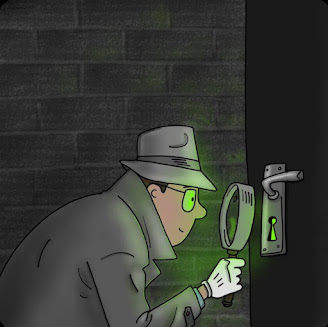Hacking: The Next Generation
MANY OF TODAY’S NEWS STORIES RELATED to cybersecurity focus On attackers—what they do and the consequences of their actions. In this Text, we will cover a wide range of techniques and technologies that Attackers use to compromise systems. We will also consider how security Professionals can use those same techniques and technologies to make their Systems harder to attack. But before we dive into the details, it is important To first understand who these attackers are and why they do What they do. During the early generations of digital computing (way back in the 1960s), Learning about computing wasn’t nearly as easy as it is today. In many cases, the best way to learn was to build your own computer! From this- It-yourself era, a group of individuals emerged who were passionately Interested in learning all they could learn about computers. They learned about Hardware, software, and ways to connect devices and communicate. Their Often-imprecise methods of building and accessing devices earned them the Moniker hackers. The first generation of hackers was called “geeks” or technology enthusiasts today. These early hackers went on To create the foundation for technologies such as the Advanced Research Projects Agency Network (ARPANET), which paved the way for the Internet. They also initiated many early software-development movements That led to what is known today as open source. Their hacking was Motivated by intellectual curiosity and a quest to collectively expand the Body of knowledge for this new domain of digital computing; causing Damage or stealing information was “against the rules” for this core group Of people. In the 1980s, hackers started to gain more of a negative reputation—one with which the public now identifies them. Movies such as War-games and media attention to their exploits altered the image of a hacker from a technology enthusiast to a computer criminal. During this time, hackers engaged in activities such as theft of service by breaking into phone systems to make free phone calls. Books such as The Cuckoo’s Egg and the emergence of magazines such as Phrase cast even more negative light on hackers. In many respects, the 1980s formed the basis for how a hacker is perceived today. Fortunately, the overall image of hackers is not all bad. A new generation of security professionals, who share many of the same aspirations as the original hackers have emerged to use their knowledge and skills to protect systems, rather than to compromise them. These professionals use hacking for ethical purposes.
Profiles and Motives of Different Types of hackers
Over the past four decades, the definition of a hacker has evolved quite a bit from the definition accepted in the 1980s and even the 1990s. Current Hackers defy easy classification and are best understood by looking at the motivations for their actions. Although there is no comprehensive list of the types of hackers active in today’s global online environments, here is a general list of categories of their motivations (you’ll learn more about each
Type of hacker in a later section in this chapter):
Good guys—Information security (InfoSec) professionals who engage in hacking activities to uncover vulnerabilities in hopes of mitigating Them and making systems more secure and resistant to attacks.
Amateurs—Entry-level hackers who do not possess their own advanced skills but rather use only scripts and software written by more experienced hackers. Because amateurs rarely do more than run other people’s scripts, they are often called “script kiddies.”
Criminals—Hackers who routinely use malicious software, Techniques, and devices to carry out illegal activities primarily for the purpose of financial gain.
Ideologues—Hackers who carry out their activities to achieve ideological or political goals. These types of hackers are sometimes called “hacktivists” because they use their hacking skills to carry out activist activities.
Nation-state actors—an increasingly worrisome group of cybercriminals are those who are directly trained and supported by nation-states. Nation-state actors are extremely sophisticated, have large budgets, and are tasked with carrying out cyber warfare operations


